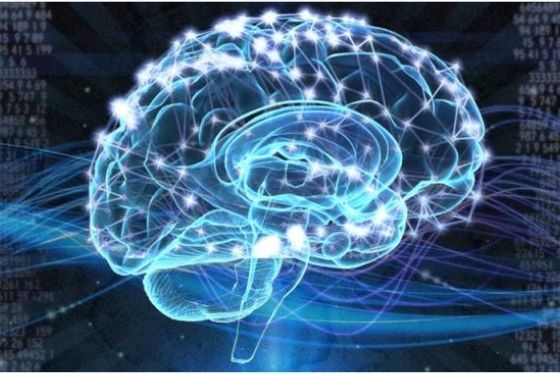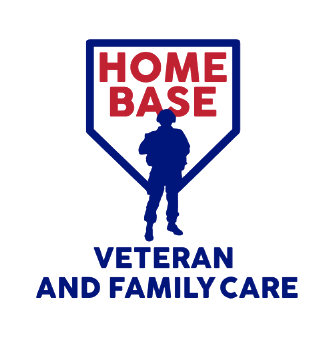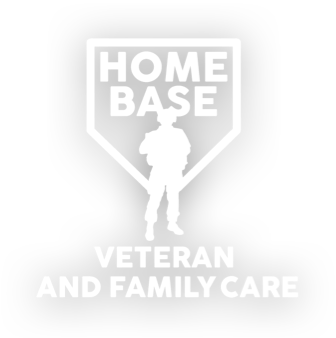Home Base Safely Reopens World-Class Treatment Programs Amid Ongoing COVID-19 Pandemic
 Amid the ongoing COVID-19 pandemic, a recent article on Military.com reporting that military suicides are up as much as 20% served as a somber reminder of the increased importance of Home Base’s mission. After making the difficult decision in March to suspend all in-person programs as COVID-19 began to spread, the Home Base team quickly pivoted to ensure patients continued to receive vital mental health care services online, while simultaneously working diligently to prepare its Boston headquarters for a safe reopening. By implementing important changes following CDC and Massachusetts General Hospital Infectious Disease guidelines, Home Base has safely reopened several in-person offerings, including its Comprehensive Brain Health and Trauma (ComBHaT) Program.
Amid the ongoing COVID-19 pandemic, a recent article on Military.com reporting that military suicides are up as much as 20% served as a somber reminder of the increased importance of Home Base’s mission. After making the difficult decision in March to suspend all in-person programs as COVID-19 began to spread, the Home Base team quickly pivoted to ensure patients continued to receive vital mental health care services online, while simultaneously working diligently to prepare its Boston headquarters for a safe reopening. By implementing important changes following CDC and Massachusetts General Hospital Infectious Disease guidelines, Home Base has safely reopened several in-person offerings, including its Comprehensive Brain Health and Trauma (ComBHaT) Program.
Formerly known as the Four-Day Traumatic Brain Injury Program, ComBHaT was launched in 2019 to provide coordinated, integrated, multi-disciplinary specialist evaluation, treatment, and care coordination for active duty Service Members and Veterans. Although ComBHaT is available to any Service Member or Veteran in need, the program has primarily been providing care to active duty Service Members of Special Operations Forces.
Up to 20 Veterans die by suicide each day[1] and, in 2018, suicides among active-duty military personnel assigned to US Special Operations Command tripled1. Like the Navy SEALs and Army Special Forces, Special Operations Forces (SOF) comprise a unique segment of the military population. They have greater lifetime combat exposure based upon an increased number of combat deployments, high-intensity combat training with significant concussive exposures, and highly kinetic missions that result in significant concussive and trauma producing operations. This includes: close quarter breaching, the use of heavy weapons systems such as recoilless rifles, high altitude military parachuting, underwater blasting, and dive-related low or variable oxygen environments. The indiscernible number of concussive exposures or activities have adversely affected their brain and mental health, vision and hearing, and muscular-skeletal system. Due to these exposures, this group is considered at high risk for developing complicated and overlapping brain and body-related health conditions.
A study in the Journal of the American Medical Association found that when compared to those without a TBI diagnosis, military Service Members with mild blast-related TBI have more global disability, neurobehavioral impairment, and mental health symptoms five years after injury.[2]
“This, along with similar research from Home Base and others, highlights the profound impact that TBI can have on the health and well-being of military service members,” explained Dr. Mary Alexis Iaccarino, Director of Clinical TBI and Breath Health Services at Home Base. “The ComBHaT program improves long-term brain health in Veterans and active duty Service Members using innovative, integrated, and coordinated multidisciplinary treatment and rehabilitation.”

Silver Star Recipient and U.S. Navy Explosive Ordinance Disposal (EOD) Technician Chief Warrant Officer (CWO3) Bill Bastable participated in the ComBHaT Program in 2019. As a U.S. Navy EOD attached to the Navy SEALs and the Army Special Forces, Bill’s military career was intense from the start. Specially trained to ensure the secure disposal of explosive weaponry, Bill spent his military career diving and parachuting in support of special operations missions in Somalia, Iraq and Afghanistan.
The injuries and stress that Bastable had sustained during his 21-year military career would eventually catch up to him nearly 10-years post-service. Suffering from chronic headaches that would affect his speech and memory and joint complications from his injuries sustained in combat, Bill would often lock himself in a dark room, isolating himself from the life triggers that would exasperate his symptoms.
After he was treated for TBI at Home Base in July 2019, Bill credits the program’s multi-disciplinary approach to treatment and care as the factor that put him back on track and laid the foundation for continued improvement in the future.
“I am no longer numb to the outside world intent of simply getting through the day. Life is no longer a haze and is instead full of color because the amazing gift Home Base gave to me and my family,” he said.
The ComBHaT Program is a highly efficient care model that helps individuals like Bill limit their time away from service, work, and family. In other healthcare settings, the complex process of scheduling and implementing specialty appointments often takes weeks or months to schedule a single appointment, and it is not until that appointment is completed that the next appointment can be scheduled. Given the number of separate visits and time lag on diagnosis and initiation of treatment, obtaining appropriate care in a timely manner is challenging. The ComBHaT Program provides patients with access to world-class medical care without barriers.
With nearly a decade of experience providing innovative and state-of-the-art medical care to Veterans and their Families, the Home Base ComBHaT program leverages evidence-based treatments to deliver exceptional and compassionate care. Through affiliations with world-renowned healthcare institutions to include Massachusetts General Hospital, Spaulding Rehabilitation Hospital, and the greater Harvard Medical School community, Home Base provides the highest quality assessment, treatment, and rehabilitation services.
Although the nature of COVID-19 has necessitated social distancing, the Home Base team understands the mission to bring healing and hope to Veterans and Service Members is more important than ever before. In a recent study by Cohen Veterans Network (CVN) and Meadows Mental Health Policy Institute (MMHPI), it is estimated that more than 500 additional Veterans could be lost to suicide annually due in part to a 5% rise in unemployment, and around 20,000 more Veterans could suffer from addiction compared to pre-COVID levels. Increased stress and anxiety due to the circumstances around COVID-19, combined with existing mental health injuries, further jeopardizes the health and well-being of Service Members.
Despite the new challenges posed by the pandemic, the ComBHaT Program is now fully operational aside from some clinical visits being conducted on a HIPPA compliant secure telehealth platform. Participants receive COVID testing before and during treatment, and universal masking and temperature and symptom screening are required. In addition to limiting cohort sizes, Home Base continues to limit the number of employees on-site and has hired full-time cleaning support throughout the treatment day. Medical and clinical teams are continuously monitoring this fluid situation and are poised to make changes as necessary to adapt and improve.
To speak with a member of the Home Base team about the ComBHaT Program, please visit homebase.org/Connect2Care or email Home Base’s Special Operators Coordinator Patrick Smith. In addition, please see below for a full overview of programs currently being offered in-person and virtually at Home Base:
IN-PERSON:
- Two-Week Intensive Clinical Program (ICP)
- Tragedy Assistance Program for Survivors (TAPS)
- Four-Day Comprehensive Brain Health and Treatment Program (ComBHaT)
- Warrior Health and Fitness (limited in-person workouts, most of the program is virtual
VIRTUAL:
- Clinical Mental Health Care via Telehealth (Outpatient Clinic)
- Veteran / Service Member 1:1 Therapy and Education
- Family Treatment and Education 1:1 Therapy, Couples Therapy, and Education
- Resilient Warrior (2021 dates scheduled)
- Resilient Family (Six-week program launched October 5th via Zoom)
- Operation Health@Home
- Slide into Home Base
- Veterans Sessions: Tuesday and Fridays at 12 PM EST
- Military Family Sessions: Mondays at 10 AM EST and Thursday at 4 PM EST
- Adventure Series (In-person events when social distancing is possible)
[1] Office of Public and Intergovernmental Affairs. “Veterans Affairs.” Go to VA.gov, 1 Sept. 2016, ww.va.gov/opa/pressrel/pressrelease.cfm?id=4074.
[2] Mac Donald CL, Barber J, Patterson J, et al. Association Between 5-Year Clinical Outcome in Patients With Nonmedically Evacuated Mild Blast Traumatic Brain Injury and Clinical Measures Collected Within 7 Days Postinjury in Combat. JAMA Network Open. 2019;2(1):e186676. doi:10.1001/jamanetworkopen.2018.6676. https://jamanetwork-com.treadwell.idm.oclc.org/journals/jamanetworkopen/fullarticle/2720069


 Home Base
Home Base